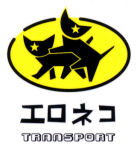| Hot Topics | |
|---|---|
Drugs At The Conbini
16 posts
• Page 1 of 1
This is great. Finally you can just make a quick stop and get something for your sniffles instead of having to make a special trip.
Listen up. You have two choices. A. Beaten then caught. Or B. Caught then beaten. -Kuga Kohtarou, Shikigami no Shiro II
-

plaid_knight - Maezumo
- Posts: 300
- Joined: Wed Dec 04, 2002 12:54 am
Pharmacists must be having a fit right about now.
Takechanpoo:
;)"Yeah, I've been always awkward toward women and have spent pathetic life so far but I could graduate from being a cherry boy by using geisha's pussy at last! Yeah!! And off course I have an account in Fuckedgaijin.com. Yeah!!!"
-

Iraira - Maezumo
- Posts: 3978
- Joined: Tue Jun 06, 2006 11:22 am
- Location: Sitting across from an obaasan who suffers from gastric reflux.
Iraira wrote:Pharmacists must be having a fit right about now.
It's cool, I'm sure some friendly neighborhood gaijin has something to ease their pain.
Mr Kobayashi: First, I experienced a sort of overpowering feeling whenever I was in the room with foreigners, not to mention a powerful body odor coming from them. I don't know whether it was a sweat from the heat or a cold sweat, but I remember I was sweating whenever they were around.
- Otaru Onsen Oral Testimony
--------------------------
Keep staring, I might do a trick.
--------------------------
Noriko you whore!
- Otaru Onsen Oral Testimony
--------------------------
Keep staring, I might do a trick.
--------------------------
Noriko you whore!
-

amdg - Maezumo
- Posts: 1880
- Joined: Mon Jun 21, 2004 9:09 pm
- Location: Leaving Noriko's bedroom window as Omae enters
How many conbini are going train jerk-off arbeiters for a year to sell aspirin?
Faith is believing what you know ain't so. -- Mark Twain
-

Samurai_Jerk - Maezumo
- Posts: 14387
- Joined: Mon Feb 09, 2004 7:11 am
- Location: Tokyo
Seven & I Holdings, which owns the 7-11 chain, has just announced that it will invest in Ain Pharmacies. Like Family Mart, 7-11 stores will also begin selling OTC drugs and Ito Yokado stores will include drug stores which may also fill prescriptions. The company also plans to develop its own brand of medication. Last year, Ain had planned to merge with drug store chain CFS. The deal would have vaulted the combined company to second place in the industry behind Matsumotokiyoshi. However, retail giant Aeon, a major rival of Seven & I and the leading shareholder of CFS with a stake of 15%, objected to the plan and managed to rally other shareholders in a rare revolt against management. Aeon subsequently announced they would increase their CFS stake to 33%.
Some of the credit for the upheaval in the drug store industry actually goes to discount retailer Don Quijote. They noted that not many pharmacies were open late at night and yet many of their customers wanted to be able to buy medication at all hours. They began to offer these services but were held to be in violation the pharmaceutical law. Snubbing the authorities, and encouraged by Tokyo Governor Ishihara, the store even began to give drugs away free of charge with a qualified pharmacist available at the end of a videophone link before this was also stopped. The drug store chains didn't care for the discounter's attempt to encroach on their turf but Don Quijote's actions highlighted how regulations were out of touch with changing customer demand and helped bring about some of the changes we are seeing today.
Some of the credit for the upheaval in the drug store industry actually goes to discount retailer Don Quijote. They noted that not many pharmacies were open late at night and yet many of their customers wanted to be able to buy medication at all hours. They began to offer these services but were held to be in violation the pharmaceutical law. Snubbing the authorities, and encouraged by Tokyo Governor Ishihara, the store even began to give drugs away free of charge with a qualified pharmacist available at the end of a videophone link before this was also stopped. The drug store chains didn't care for the discounter's attempt to encroach on their turf but Don Quijote's actions highlighted how regulations were out of touch with changing customer demand and helped bring about some of the changes we are seeing today.
-

Mulboyne - Posts: 18608
- Joined: Thu May 06, 2004 1:39 pm
- Location: London
When I was in Japan last month, I went to a couple combini in Hachinohe looking for aspirin.
I could have sworn that combini sold at least aspirin 8 years ago, but none of them had it. Walked past a hole in the wall kusuriyasan and boom, in and out faster than a sailor in a whore house on his first shore leave.
I could have sworn that combini sold at least aspirin 8 years ago, but none of them had it. Walked past a hole in the wall kusuriyasan and boom, in and out faster than a sailor in a whore house on his first shore leave.
I will not abide ignorant intolerance just for the sake of getting along.
-

American Oyaji - Posts: 6540
- Images: 0
- Joined: Sun Oct 20, 2002 9:20 pm
- Location: The Evidence of Things Unseen
now if only we could get them to sell real meds that actually work and not miscellaneously coloured powders and other fucked meds..


"Cause I'm stranded all alone, in the gas station of love, and I have to use the self-service pumps.."
- "Weird Al" Yankovic
- "Weird Al" Yankovic
-

james - Posts: 1829
- Images: 1
- Joined: Fri Oct 22, 2004 9:21 am
- Location: off the deep end
james wrote:
Now I'll snort anything that company peddles! Nic pic James!
"There are those that learn by reading. Then a few who learn by observation. The rest have to piss on an electric fence and find out for themselves!"- Will Rogers

-

Greji - Posts: 14357
- Joined: Fri Jun 25, 2004 3:00 pm
- Location: Yoshiwara
Did someone say DRUGS AT THE CONBINI?!

Say hello to your friendly Family Mart specialists.
Say hello to your friendly Family Mart specialists.
You do not have the required permissions to view the files attached to this post.
In the beginning the universe was created. This has made a lot of people very angry and been widely regarded as a bad move - Douglas Adams
-

Midwinter - Maezumo
- Posts: 649
- Joined: Thu Mar 10, 2005 10:06 pm
Asahi: Convenience stores start selling over-the-counter drugs
Convenience stores and supermarkets Monday started selling over-the-counter drugs without the use of pharmacists under a legal revision expected to deal a financial blow to drugstores. Under the revised Pharmaceutical Affairs Law, stores can sell OTC medicine through a "registered seller" who has passed an official exam instead of a pharmacist. Starting at 3 a.m. Monday, 97 drugs, including cold medicine and headache pills, were placed on shelves at the entrance of the Seven-Eleven outlet near Kojimachi subway station in Tokyo's Chiyoda Ward. Although Seven-Eleven Co. employs pharmacists at about 20 outlets, the Kojimachi store will deal in OTC drugs around the clock through four registered sellers. At the Sunkus convenience store near the east exit of JR Tamachi Station in Tokyo's Minato Ward, 200 drugs, including cold remedies and digestive medicine, are now available during certain hours.
Major supermarkets, which have used pharmacists to sell medicine, can now save on wages by hiring registered sellers. They are not only increasing sales space for OTC drugs but also reducing their prices. Starting Monday, Aeon Co., a major supermarket chain operator, cut prices of 300 pharmaceutical products, including digestive medicine and eye drops, by 10 to 20 percent at 300 of its Jusco and MaxValu supermarkets in Honshu and Shikoku. By fiscal 2011, Aeon plans to increase the number of private-brand drugs by 60 percent to 300 and sell them at prices that are up to 40 percent cheaper than those of major pharmaceutical companies. Ito-Yokado Co., another supermarket chain, reduced the prices of 200 drugs, such as cold and intestinal medicines, at 112 outlets around the country through June 30. In a tie-up with Ain Pharmaciez, the largest operator of dispensing pharmacies in Japan, Ito-Yokado established a new company on Monday and plans to open dispensing pharmacies together with Seven-Eleven. Electronic chains such as Yamada-Denki Co. and Kojima Co. also plan to employ more registered sellers and carry OTC drugs at more branches. Drugstores face fierce competition under the new system. MatsumotoKiyoshi Co., a leading drugstore chain, intends to counter the new challenge by keeping more stores open around the clock and offering more private-brand medicine.
-

Mulboyne - Posts: 18608
- Joined: Thu May 06, 2004 1:39 pm
- Location: London
American Oyaji wrote:When I was in Japan last month, I went to a couple combini in Hachinohe looking for aspirin.
I could have sworn that combini sold at least aspirin 8 years ago, but none of them had it. Walked past a hole in the wall kusuriyasan and boom, in and out faster than a sailor in a whore house on his first shore leave.
Could get Bufferin and all that at the 7-eleven near me back in 1993 - how many times I cycled there at 3am with a beeru headache.
-

sillygirl - Posts: 2496
- Images: 0
- Joined: Mon Mar 22, 2004 8:13 pm
- Location: Mingland
Yomiuri: Drug law making major impact / Pharmaceutical sellers facing stiff competition after revision
The revised Pharmaceutical Affairs Law introduced two months ago has drastically changed the way over-the-counter drugs are sold by allowing supermarkets and other stores to sell nonprescription drugs without a pharmacist on duty. However, sales of Category 1 drugs, which have a high risk of side effects, have dropped since the revision on June 1 because the law requires pharmacists to explain possible side effects to their customers. Moreover, mail-order firms have seen sales of nonprescription drugs nosedive due to tightened regulations on the drugs under the revised law. MatsumotoKiyoshi Co., the nation's largest drugstore chain operator, opened an outlet in July about 20 meters from Gotanda subway station in Shinagawa Ward, Tokyo. The new outlet, Medi+Matsukiyo, is the firm's first on the station premises to be operated by a registered drug seller with qualifications established under the revised law.
Despite a sales floor of only 20 square meters, the shop is well stocked with a specified range of Category 2 drugs that have few side effects, such as most cold and analgesic antipyretic drugs, and Category 3 drugs, such as vitamin supplements and health foods. Thus far, the store has been popular with businesspeople and other customers day and night. MatsumotoKiyoshi has about 3,000 registered drug sellers with qualifications based on at least a year of experience selling drugs and a test administered by a prefectural government. Drugstore operators such as MatsumotoKiyoshi can cut personnel expenses by employing these registered drug sellers rather than central government-certified pharmacists, and they consequently have spearheaded expansion into station shops and 24-hour stores.
Other major drugstores, such as Sugi Holdings Co. and Sundrug Co., have attempted to expand their chain stores as they try to keep up with the competition. Major supermarket operators have reduced the price of nonprescription drugs, taking advantage of the revised law. Daiei Inc. reduced the price for 280 nonprescription drugs by up to 55 percent for July only, but decided to continue the cuts for most pharmaceutical items until Aug. 17 after the sales volume of the drugs increased an average of 1.8-fold. Aeon Co. also reduced the price for 300 pharmaceutical items, increasing sales by 20 percent. The firm plans to open a sales floor to be operated by a registered drug seller in a small supermarket in autumn.
Meanwhile, mail-order firms have been left behind in the competition between drugstores and supermarkets due to an ordinance issued by the Health, Labor and Welfare Ministry in accordance with the revised law to strengthen regulations on Category 1 and 2 drugs. As a provisional measure, applicable until late May 2011, mail-order firms can sell Category 2 drugs to people living on remote islands or to people who have regularly purchased the drugs from the firms However, the firms will be prohibited from selling the drugs after June 2011. A spokesman of Kenko.com, Inc., a Minato Ward, Tokyo-based firm that sells health food and drugs on the Internet, said the tightening of the regulations was crucial to the survival of the firm, which had been battered by a 62.4 percent plunge in sales of its pharmaceutical products in June compared with the previous month. Sales in July were expected to decrease by another 20 percent. Kenko.com filed a lawsuit in May with the Tokyo District Court against the central government seeking to nullify the ministry's ordinance prohibiting the sales of nonprescription drugs via the Internet. The firm claimed the ordinance was unreasonable.
-

Mulboyne - Posts: 18608
- Joined: Thu May 06, 2004 1:39 pm
- Location: London
- Mock Cockpit
- Maezumo
- Posts: 700
- Joined: Sun Mar 23, 2008 9:58 pm
I'm not 100% sure about this but this might be a list of various items
by risk category in over the couter drugs in Japan.
http://www.genome.jp/kegg-bin/get_htext?htext=br08312.keg&filedir=%2ffiles&extend=A1-2&open=A3#A3
although there also seems to be a therapeutic category of drugs as well, although this seems a much large group of items, including items that would be unlikely solid over the counter
http://www.genome.jp/kegg-bin/get_htext?htext=br08301.keg&filedir=%2ffiles&extend=A4A6D48B7B15&close=B15#B15
by risk category in over the couter drugs in Japan.
http://www.genome.jp/kegg-bin/get_htext?htext=br08312.keg&filedir=%2ffiles&extend=A1-2&open=A3#A3
although there also seems to be a therapeutic category of drugs as well, although this seems a much large group of items, including items that would be unlikely solid over the counter
http://www.genome.jp/kegg-bin/get_htext?htext=br08301.keg&filedir=%2ffiles&extend=A4A6D48B7B15&close=B15#B15
The Enrichment Center reminds you that the weighted companion cube will never threaten to stab you and, in fact, cannot speak.
-

Kuang_Grade - Maezumo
- Posts: 1364
- Joined: Sat Aug 14, 2004 2:19 pm
- Location: The United States of Whatever
Bloomberg: Lawson, Matsumotokiyoshi Plan to Open Outlets, Nikkei Reports
Lawson Inc. and Matsumotokiyoshi Holdings Co. plan to open outlets combining their convenience store and drugstore formats, Nikkei English News said, without citing anyone. The Japanese companies will announce their planned alliance as early as today and open stores from next spring, the report said. The outlets will sell cosmetics and over-the-counter drugs as well as food and beverages, the report said. The companies will also supply each other with products and ally to develop private-brand drugs, the Nikkei said.
-

Mulboyne - Posts: 18608
- Joined: Thu May 06, 2004 1:39 pm
- Location: London
16 posts
• Page 1 of 1
Who is online
Users browsing this forum: No registered users and 68 guests

